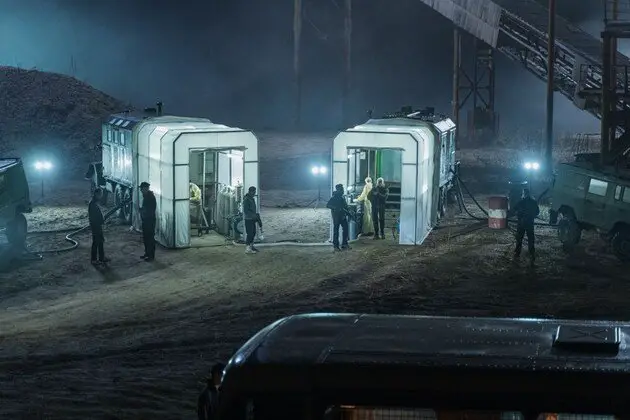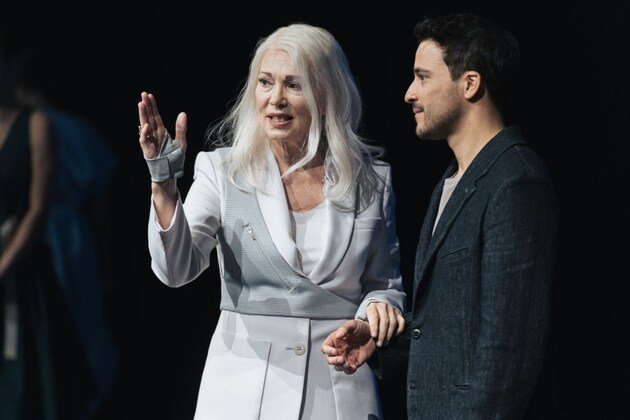Paradise Story:-
In the realm of speculative fiction, where filmmakers often explore the boundaries of human ingenuity and societal progress, Boriz Kunz’s film Paradise stands as a thought-provoking addition. Inspired by Margaret Atwood’s poignant words in The Handmaid’s Tale, the movie delves into the intricate web of consequences that accompany seemingly revolutionary advancements.
Movie Ratings
| Release Date | 27 July 2023 |
| Language | English |
| Genre | Action, Sci-Fi, Thriller |
| Duration | 1h 58min |
| Cast | Numan Acar, Lucas Lynggaard Tønnesen, Iris Berben, Kostja Ullmann, Diana Krueger, Lukas von Horbatschewsky, Donatas Simukauskas, Matthias Ziesing |
| Director | Boris Kunz |
| Writer | Simon Amberger, Peter Kocyla, Boris Kunz |
| Cinematography | Christian Stangassinger |
| Producer | Nathalie Bouteiller-Marin, Nina Kammermeier |
| Production | NEUESUPER |
| Certificate | 16+ |
At the heart of Paradise lies the concept of ‘chrono transfers’, a technology introduced by Aeon, a corporation led by the visionary Sophie Thiessen. Initially conceived as a means to combat disease and extend human lifespan, ‘chrono transfers’ quickly become entangled in a web of ethical dilemmas and societal inequalities. As Sophie grapples with her daughter’s illness, she inadvertently sets in motion a chain of events that will challenge the very fabric of society.
The film meticulously constructs the world of Aeon, where pastel hues and pristine landscapes serve as a stark contrast to the moral ambiguity that lies beneath the surface. Through the eyes of protagonist Barbie, portrayed with depth and nuance by Margot Robbie, audiences are thrust into the heart of Barbieland, a utopian enclave where perfection reigns supreme. Yet, as Barbie begins to question the status quo, she uncovers the dark underbelly of Aeon’s advancements.
One of the film’s most compelling aspects is its exploration of the societal implications of ‘chrono transfers’. On the surface, the technology offers the promise of extended life and freedom from disease. However, as the narrative unfolds, viewers are confronted with the harsh reality that accompanies such advancements. Refugees are coerced into selling their years for citizenship, while individuals trade their ages as collateral for loans or to evade punishment. In this world, the pursuit of progress comes at a steep cost, leaving behind a trail of broken lives and shattered dreams.
At the center of Paradise‘s narrative is the relationship between Barbie and Ken, portrayed with charm and wit by Ryan Gosling. As Barbie grapples with her existential crisis, Ken serves as both a foil and a companion on her journey. Their dynamic is a testament to the film’s ability to blend humor and heart, even in the face of adversity.
Throughout the film, Paradise raises thought-provoking questions about the nature of progress and the consequences of unchecked ambition. In a world where corporations wield more power than governments, who holds the key to shaping the future? Can individuals truly absolve themselves of ethical responsibility in the pursuit of technological advancement?
As the narrative unfolds, Paradise challenges viewers to confront these questions head-on, offering no easy answers. Yet, amidst the chaos and uncertainty, there remains a glimmer of hope. Through Barbie’s journey of self-discovery, the film reminds us that even in the darkest of times, there is always room for redemption and renewal.
In conclusion, Boriz Kunz’s Paradise is a masterful exploration of the human condition and the perils of unchecked ambition. Through its richly drawn characters and thought-provoking narrative, the film invites audiences to ponder the consequences of our actions and the true meaning of progress. As we navigate an increasingly complex world, Paradise serves as a timely reminder of the importance of empathy, compassion, and the pursuit of a better future for all.





